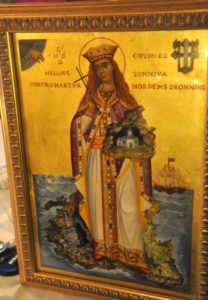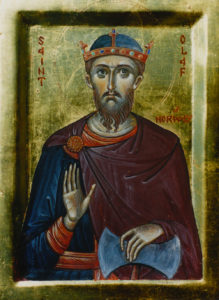† B A R T H O L O M E W
BY THE MERCY OF GOD ARCHBISHOP OF CONSTANTINOPLE,
NEW-ROME, AND ECUMENICAL PATRIARCH,
TO THE PLENITUDE OF THE CHURCH,
GRACE AND PEACE
FROM OUR SAVIOR CHRIST,
TOGETHER WITH OUR PRAYER, BLESSING AND FORGIVENESS
Beloved and blessed brethren and children in the Lord,
Yet again this year, through the God-inspired words, the holy Psalmist ushers the Orthodox faithful into the “mystery” of Holy and Great Lent, pointing out the benevolence of the Lord and the workings thereof as he cries out, the Lord works mercy and righteousness for all the oppressed (Psalm 102,6). For the Lord satisfies our desire with good things so that our youth is renewed like that of the eagle (c.f. .5).
As we all know, each person, created in the image and the likeness of God, constitutes a temple of the Lord. All the more, those of us who have been baptized in Christ, anointed with Holy Chrism, and grafted onto the olive tree of the Orthodox Church, are temples of the Holy Spirit Who resides in us. This is the case even as we distance ourselves from the Lord by committing sin—voluntary or involuntary—for if we are faithless, He remains faithful (2 Tim 2:13).
Unfortunately, the stain of sin hinders the Grace of the Holy Spirit to work in us. For this reason, our Holy Orthodox Church established the forthcoming period of fasting during Holy and Great Lent to allow us to cleanse ourselves through repentance, and thereby becoming worthy to receive the life-giving Passion and the glorious Resurrection from the dead of our Lord Jesus Christ. The poet of the Great Canon, Saint Andreas of Crete, urges: Come, my wretched soul, and confess your sins in the flesh to the Creator of all. From this moment forsake your former foolishness and offer to God tears of repentance (Great Canon, Monday Ode 1).
The Church, always concerned about our salvation and spiritual perfection, initiates her members into this period of repentance, urging them all to struggle against the materialistic and covetous way of life, which, as a “heavy yoke,” grounds the soul and drags it upon the earth, hindering its ability to spread its wings toward heaven and the kingdom of God.
In this way, through repentance and purifying tears, we are clothed again with our original beauty and our God-spun shroud that we lost after the fall, covering ourselves, instead, with the coat of shame similar to the fig leaves worn by Adam.
The fast and abstinence from food, idle talk, and deceitful thought represent the start of the correct, restrained, and temperate use of material goods, with the common good as its goal. In this way, we eliminate the negative impact that irrational use of goods may have upon society and the natural environment. This, therefore, allows for the prevailing of the philanthropic fast, which should not render judgment over the oppressed, but offer mercy, grace and comfort for them and for us on our journey toward the likeness of God (St. Basil Great).
In this way, a temperate use of goods sanctifies both matter and our lives since perishable matter is not the goal per se of sanctification, but rather, its means. Therefore, according to the evangelical periscope, the fast should constitute a motive for restraint, with a final goal to abound in hope in the power of the Holy Spirit (Rom. 15:13), according to the word of the Great Apostle of the Nations Paul. This holds true even for today’s poor “Lazarus” and for those seeking refuge.
Furthermore, the true spirit of the fast and of abstinence should not be forgotten, since this is what renders them acceptable to the Lord, as James the Apostles teaches: religion that is pure and undefiled before God the Father, is this: to visit orphans and widows in their affliction, and to keep oneself unstained from the world (James 1, 27). For we shall not obtain grace—offered to us in abundance through the fast and through abstinence—simply by refusing and abstaining from food. The Prophet Isaiah wonders: Your fasting ends in quarreling and strife, and in striking each other with wicked fists; is this the kind of fast I have chosen? (Isaiah 58: 4). The Lord declares, through the Prophet, I have not chosen such a fast, but one that asks you to share your food with the hungry, that encourages you to invite the homeless into your home, and to clothe the naked when you see them (Isaiah 58, 5-7).
Especially in our times, the financial and refugee crises, as well as the multitude of hardships that plague the world today offer to us Orthodox Christians the possibility to cultivate the authentic spirit of the fast, linking abstinence from food with acts of charity and solidarity toward our brethren most in need—those who suffer, the poor, the homeless, the refugees, those who have no place to rest their head (Math. 8: 20), and those who are forced by the harsh conditions of war, challenges, and grief to abandon their paternal homes and to travel amid countless risks, dangers, and sorrows.
When our fast is accompanied by an increase in philanthropy and love toward the least of our brethren in the Lord, regardless of their race, religion, language and origin, then the fast shall ascend to the throne of God as a fragrant incense, and angels shall stand by us while we fast, in the same way they ministered to the Lord in the desert.
We offer our heartfelt fraternal and paternal prayers to all, that the imminent phase the Holy Fast will prove fruitful and sanctifying, replete of grace and holiness, and that God will render us worthy and without tribulation to enter into the eternal and life-giving Chalice—the life-bearing Side of the Lord—from which sprang as the fountain of deliverance and wisdom (Great Canon, Wednesday, Ode 4)
May the Divine Grace and the abundant Mercy of the Lord be with you all, bretheren and children, so that you may receive, through the evangelical ethos, the Gift of the Feast of feasts and the Celebration of celebrations—the Resurrection of our Lord Jesus Christ, to Whom all glory, dominion, honor, and thanksgiving now and to the endless ages. Amen.
Holy and Great Lend, 2016
Bartholomew, Archbishop of Constantinople
Your fervent supplicant to God

 Fr. Johannes Johansen: Everybody thinks that Norway was Roman Catholic the first 500 years and then Lutheran/protestant. BUT this is a truth which has to be corrected. The Christianity started to influence “Norway” already in the 8th century, and in the 1000-c. We have the history with St. Sunniva of Selja (described in The Saga about King Olav Tryggvason) and then we have St. Olav Haraldson who eventually Christianized Norway (Stiklestad 1030), and a little later st. Hallvard in Oslo-aerea) – all of it BEFORE the schism between Rome and the other Orthodox Churches. That means the Church/Christianity in Norway in that first period was Orthodox Church/Christianity (not “roman-catholic”).
Fr. Johannes Johansen: Everybody thinks that Norway was Roman Catholic the first 500 years and then Lutheran/protestant. BUT this is a truth which has to be corrected. The Christianity started to influence “Norway” already in the 8th century, and in the 1000-c. We have the history with St. Sunniva of Selja (described in The Saga about King Olav Tryggvason) and then we have St. Olav Haraldson who eventually Christianized Norway (Stiklestad 1030), and a little later st. Hallvard in Oslo-aerea) – all of it BEFORE the schism between Rome and the other Orthodox Churches. That means the Church/Christianity in Norway in that first period was Orthodox Church/Christianity (not “roman-catholic”). Fr. Johannes Johansen: We do not say “The Norwegian Orthodox Church” but “The Orthodox Church in Norway” (an important difference). The most important saints for Orthodoxy in Norway are: St. Sunniva, St. Olav, St. Hallvard and St. Trifon, the apostles Peter and Paul. St. Seraphim of Sarov and St. Nicholas.
Fr. Johannes Johansen: We do not say “The Norwegian Orthodox Church” but “The Orthodox Church in Norway” (an important difference). The most important saints for Orthodoxy in Norway are: St. Sunniva, St. Olav, St. Hallvard and St. Trifon, the apostles Peter and Paul. St. Seraphim of Sarov and St. Nicholas.


